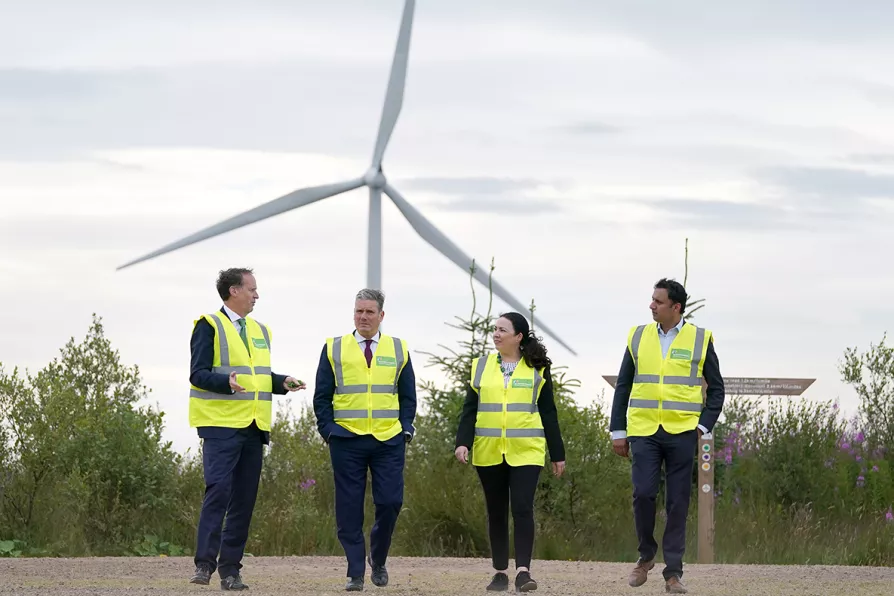If parties are serious about rebuilding trust, as the elections approach, they must embrace bold redistribution, invest in public services and put working people, not the wealthy few, at the heart of Scotland’s future, argues ROZ FOYER
The energy revolution: rhetoric and reality
We will fight to make sure the promises on job creation made by the SNP and Labour are delivered and that the coming green transition centres workers, writes Unite Scottish secretary DEREK THOMSON

 Labour leader Sir Keir Starmer is given a tour by Scottish Power Chief Executive Keith Anderson(L) alongside Monica Lennon and Anas Sarwar during a visit to Whitelees windfarm, Eaglesham, as he continues his visit to Scotland, August 5, 2021
Labour leader Sir Keir Starmer is given a tour by Scottish Power Chief Executive Keith Anderson(L) alongside Monica Lennon and Anas Sarwar during a visit to Whitelees windfarm, Eaglesham, as he continues his visit to Scotland, August 5, 2021
IT’S an honour to follow in the footsteps of Pat Rafferty as the new Scottish secretary of Unite.
Pat was a first-class leader from 2010. He leaves with Unite growing in Scotland, and not many people can leave the building saying that.
It has been days since I took up the post, and the in-tray of issues facing the union is long. There are many challenges to face, with rogue employers trying to undercut the terms and conditions of our members and one of the most hostile Westminster governments in living memory — though hopefully not for too much longer.
Similar stories

As we face savage cuts to our pay and conditions while the executive gravy train chugs on, Unite is putting the Scottish government on notice as workers prepare for a massive wave of resistance, writes DEREK THOMSON












